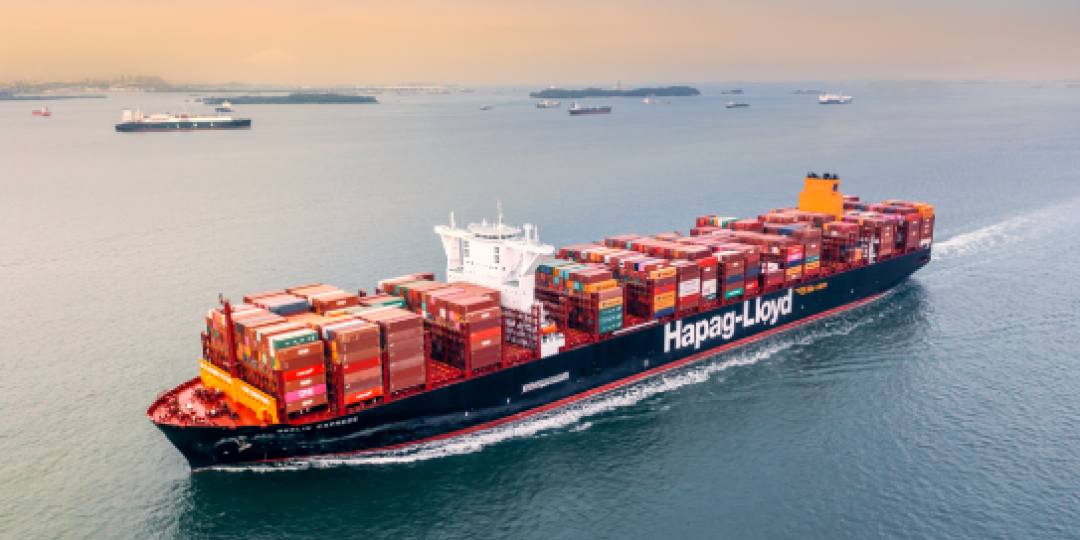Hapag Lloyd’s brand continues to appear on the radar of green shipping developments following last week’s announcement that Zemba (Zero Emission Maritime Buyers Alliance) has awarded the Hamburg carrier a zero-emission contract.
In the latest decarbonisation drive involving Hapag Lloyd (HL) has signed an agreement with vessel owner Seaspan Corporation to retrofit five 10 100-TEU charter vessels to dual-fuel engines capable of operating on methanol.
The container ships are currently powered by conventional MAN S90 engines.
Following the engine retrofit, the vessels will continue to be on long-term charter from Seaspan to Hapag-Lloyd.
“The methanol retrofit project is a further step in our ambitious sustainability agenda, which aims to decarbonise the entire fleet by 2045.
“By enabling these vessels to use green methanol as of 2026, we will meet our customers’ growing demand for green transportation solutions,” said Dr Maximilian Rothkopf, Hapag-Lloyd’s COO.
Torsten Holst Pedersen, CEO of Seaspan, believes retrofitting is key if the container shipping industry wants to deliver on its decarbonisation targets.
“To achieve its strategic decarbonisation goal, Hapag-Lloyd’s investments are not only focused on newbuilds or retrofits (dual-fuel propulsion) and the optimisation of the efficiency of our existing fleet but also on covering the exploration and sourcing of green fuels,” said Rothkopf.
Green methanol is emerging as one of the low-emission fuels of the future, Hapag Lloyd has said in a statement.
The vessels scheduled for retrofits are the Seaspan Amazon, Seaspan Ganges, Seaspan Thames, Seaspan Yangtze and Seaspan Zambezi.
The retrofit is expected to take approximately 80-90 days per vessel starting in the first quarter of 2026.
The total investment is estimated at around $120 million for the five units.













